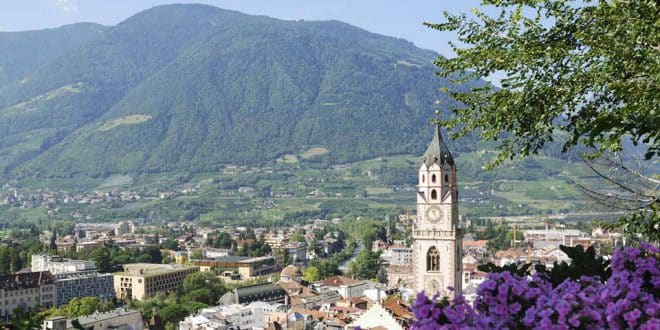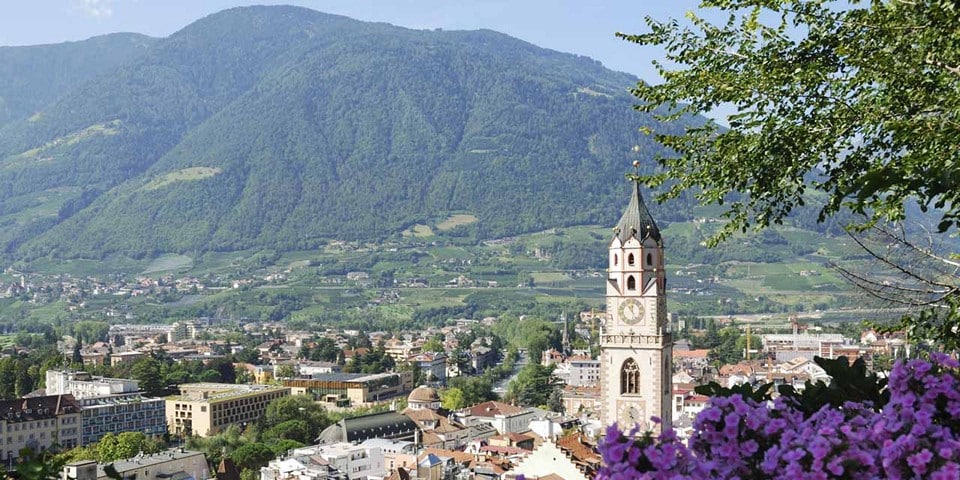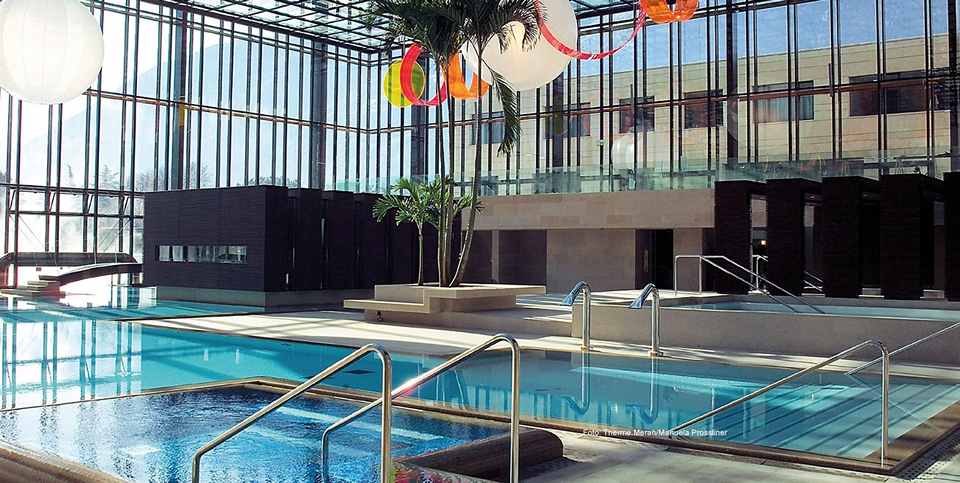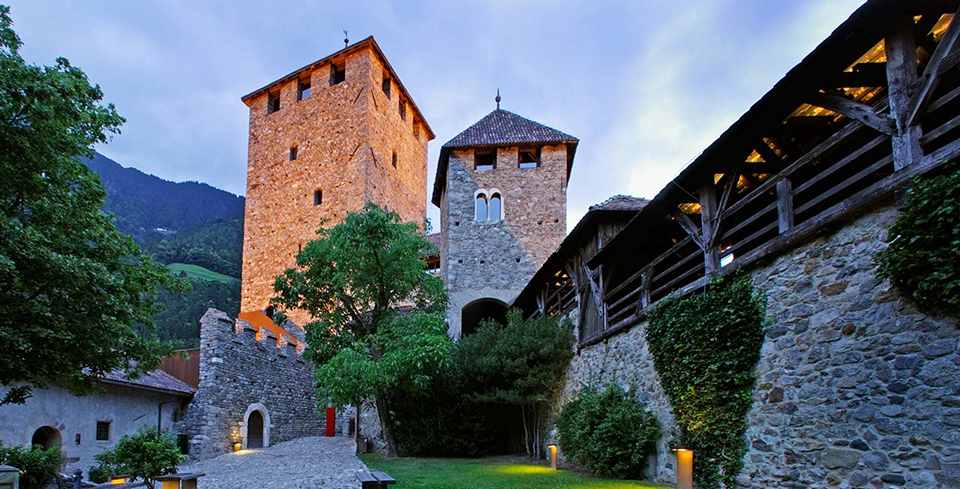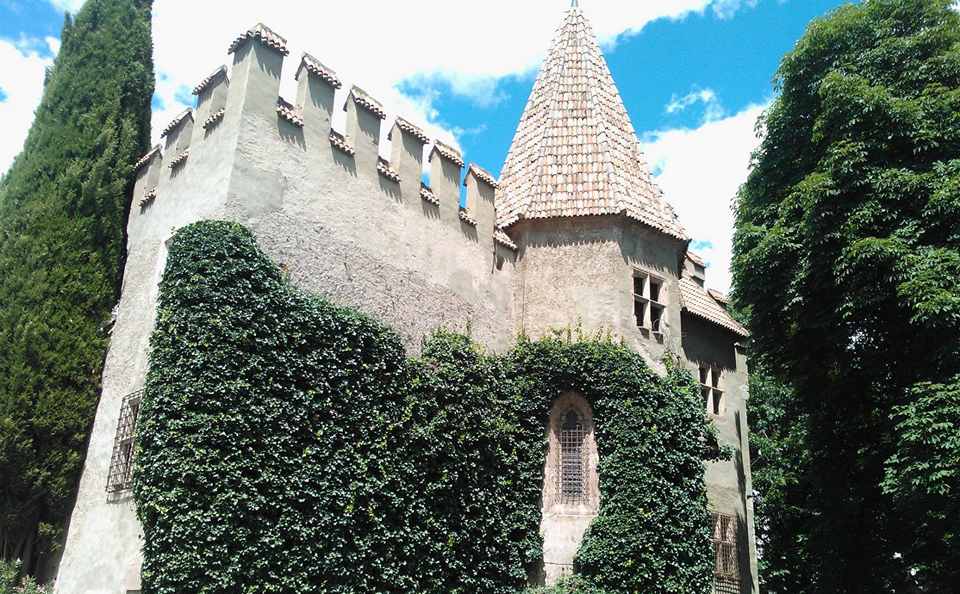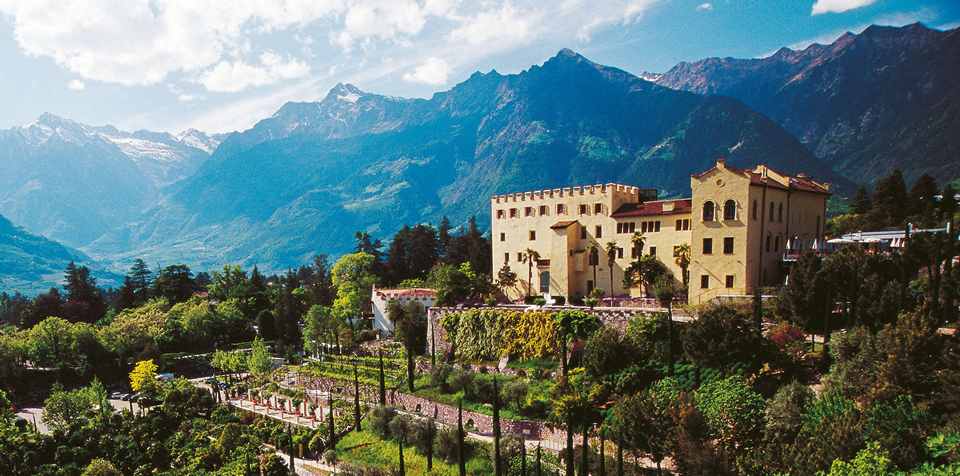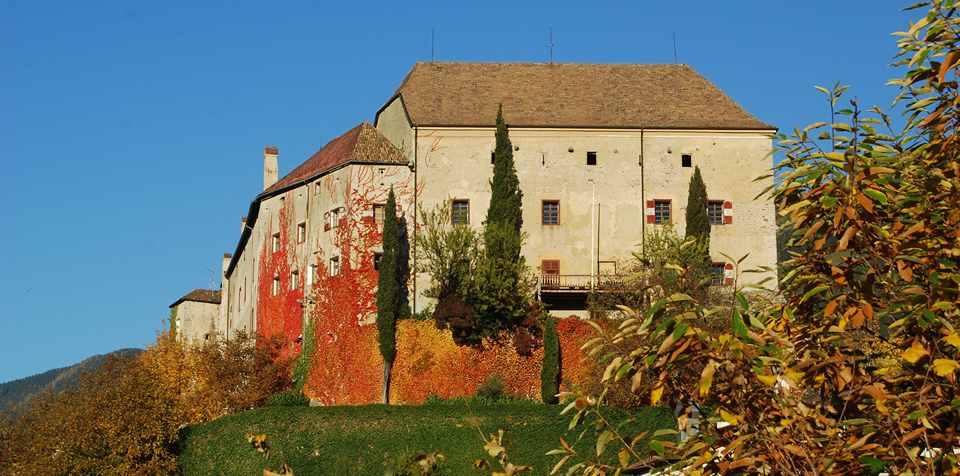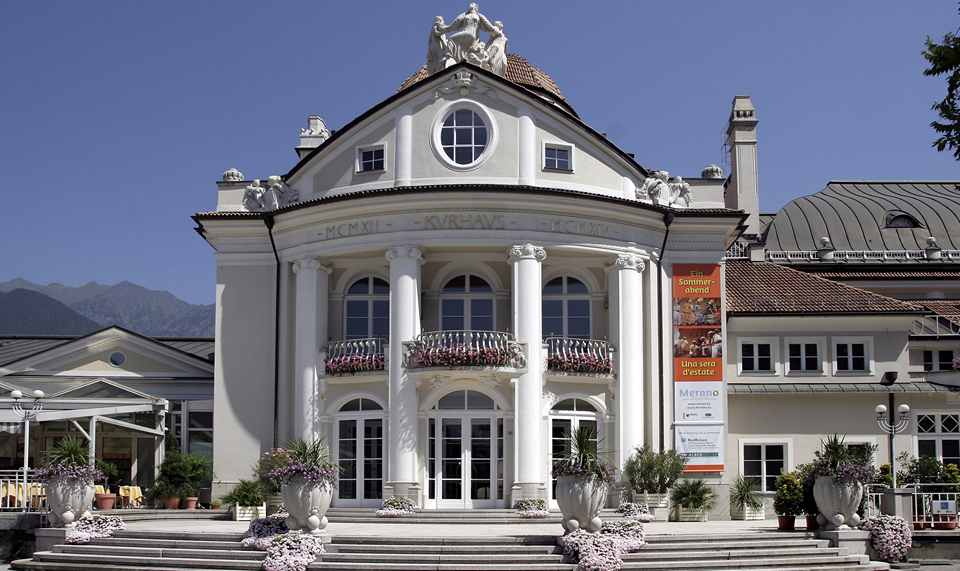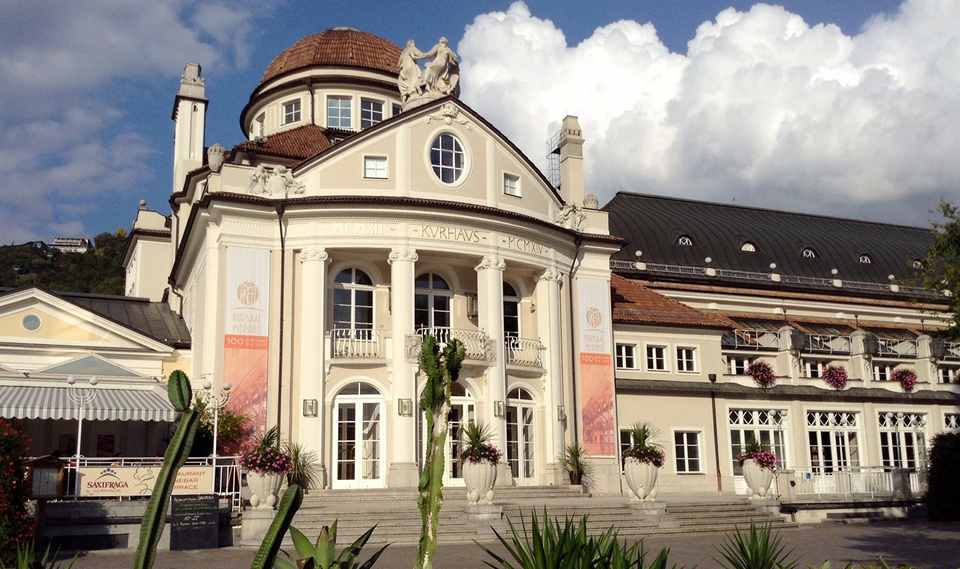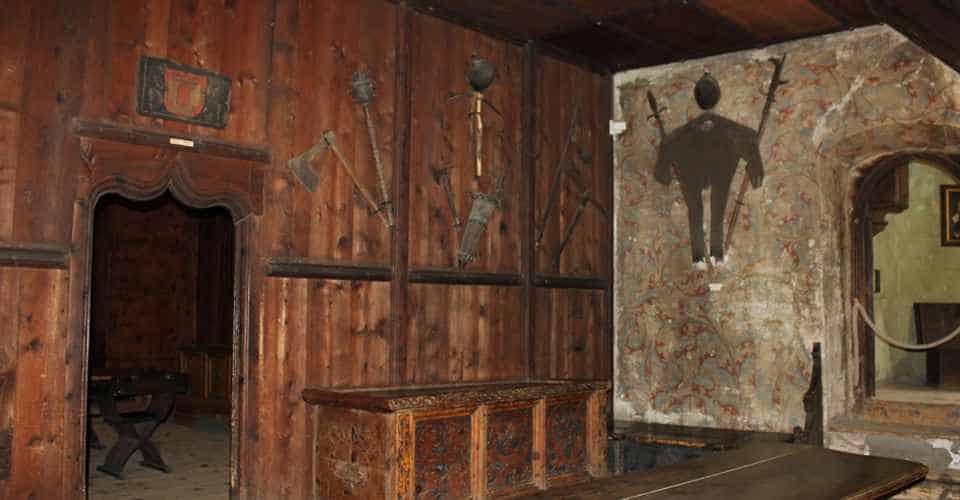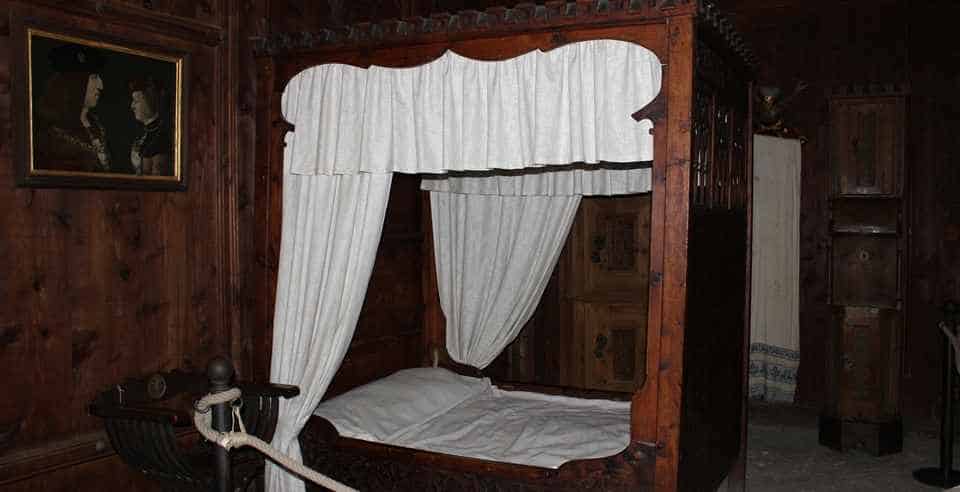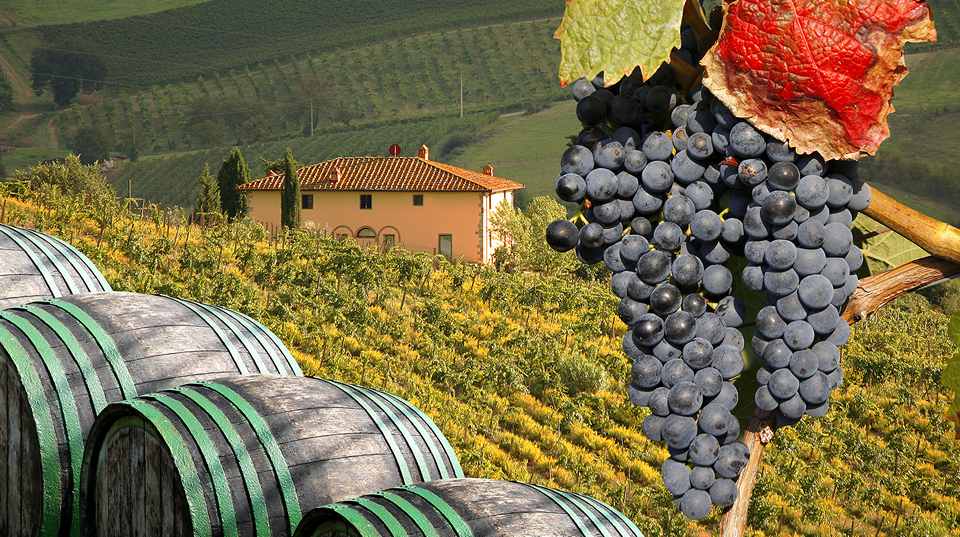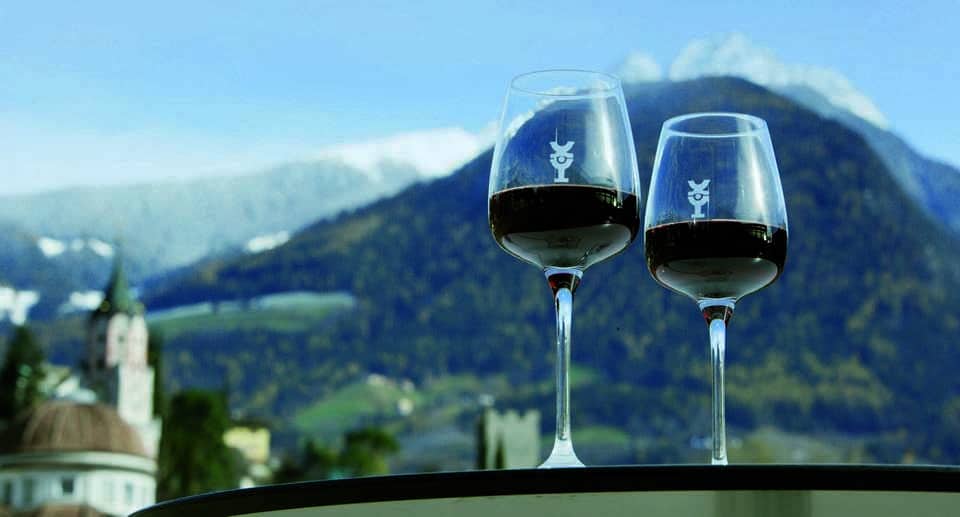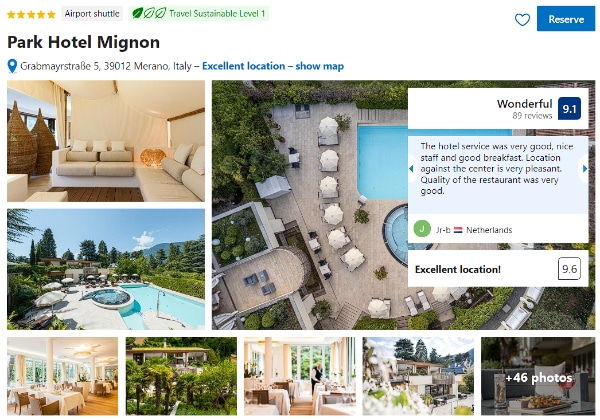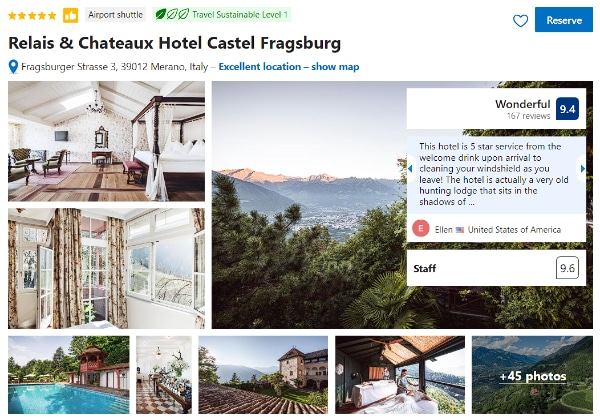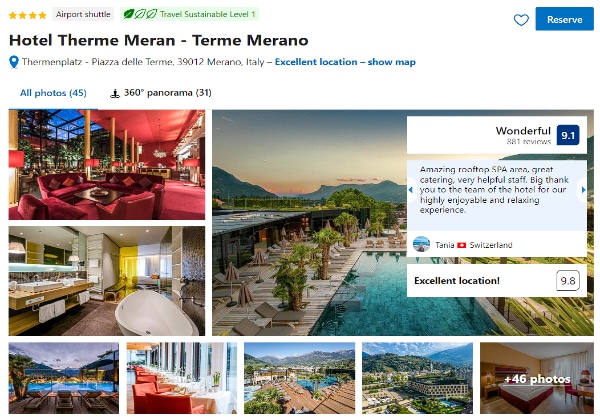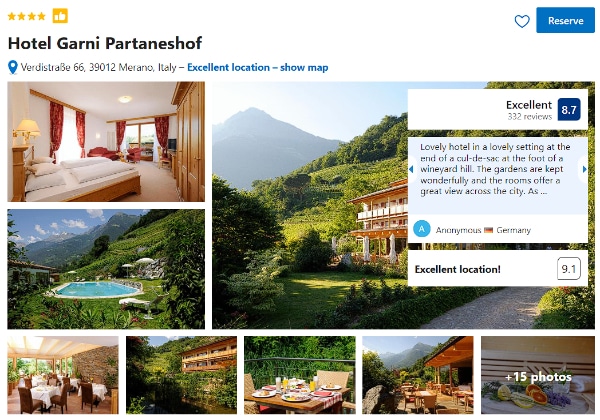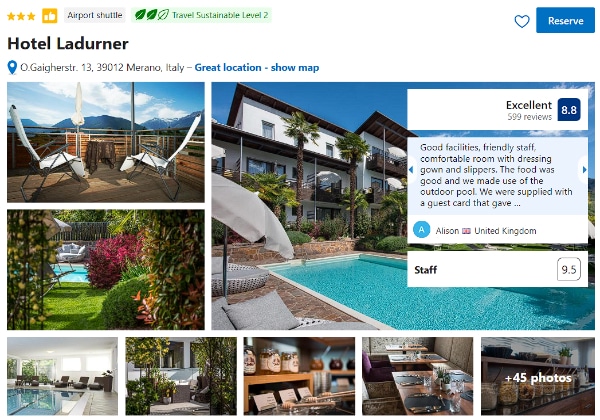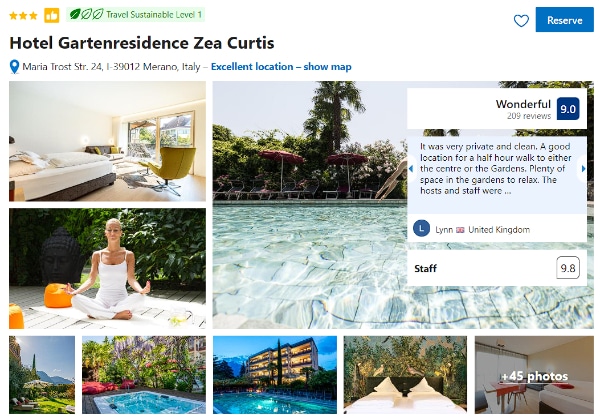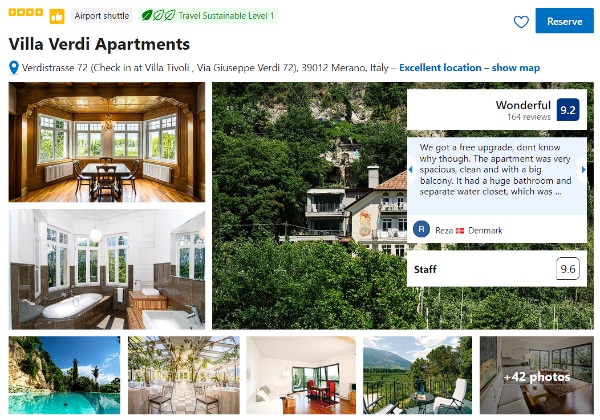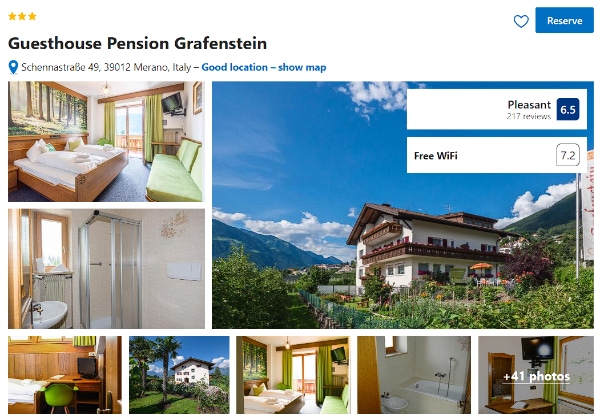Merano – a city in the Italian province of Bolzano, within the Trentino-Alto Adige region, located by the Passirio River, 112 kilometers from the Austrian border amidst the peaks of the Alps.
Merano is a unique place where we see high mountain peaks alongside palm trees, cypresses, medieval knightly castles, majestic cathedrals, vineyards climbing the mountainside, olive groves, blooming azaleas, and an array of other flowers. Merano resembles a tropical park, carefully sheltered from winds and cold by the Tessa mountain ridge.
It is not only the mild and health-beneficial Mediterranean climate that draws attention, but also the thermal springs discovered here in the 19th century.
Situated in a fairy-tale valley between mountains next to a swift mountain river, Merano offers unforgettable experiences to those wishing to improve their health, enthusiasts of skiing, and connoisseurs of landmarks and ancient architecture. And the festivals and celebrations will convince anyone who comes here that there is no better place on Earth than Merano!
Page Contents
Things To Know Before Visit Merano
What is Merano known for?
What to do in Merano?
What to see in Merano?
Interesting Facts about Merano
- Merano, nestled in the enchanting Italian Alps, boasts a rich history dating back to Roman times. With archaeological evidence tracing settlements to 15 BC, the city’s foundations run deep.
- Reflecting its unique location, Merano is a bilingual treasure. Italian and German languages harmoniously coexist due to its history of being part of both Austria and Italy, adding cultural diversity to its charm.
- Renowned for its therapeutic qualities, Merano gained fame as a spa destination in the 19th century. Empress Elisabeth of Austria (Sisi) frequented its healing waters, enhancing the town’s reputation as a wellness retreat.
- Dating back to the 13th century, Trauttmansdorff Castle stands as a majestic testament to Merano’s history. It has evolved into a botanical garden paradise, housing diverse plant species from around the world.
- Celebrating the love for music, the Merano Music Festival (www.meranofestival.com) has graced the city since 1986. With over a century of history and performances by illustrious artists, it continues to enrapture visitors with its enchanting melodies.
History of Merano
The area around present-day Merano was part of the Roman Empire from 15 BCE, with a military camp established here. During the Middle Ages, these lands became part of the County of Tyrol, with Merano as its capital, gaining city status in the 13th century.
From 1363, the Tyrol territory was handed over to the Habsburg dynasty and incorporated into Austria. Merano rejoined Italy only after 1918. The official languages are German and Italian. The population composition in the city includes around 70% Austrians, 26% Italians, and representatives of other nationalities.
Thermal Springs in Merano
Natural mineral waters in Merano contain radon, which has a beneficial effect on the nervous, cardiovascular, musculoskeletal, and other systems of the body.
Local healing waters improve overall well-being and normalize bodily functions:
- They eliminate toxins and harmful substances.
- They accelerate metabolic processes.
- They have a positive effect on skin.
- They improve psychological well-being, among other benefits.
The Terme Merano thermal baths are housed in an original modern glass building shaped like a cube. The complex includes 25 pools with mineral water, saunas, and spa centers. During treatments, visitors can enjoy stunning views through the glass walls of the thermal complex.
Official spa website: www.termemerano.it/en
I also recommend reading about thermal springs on the island of Ischia and Lake Garda.
Landmarks of Merano
https://youtu.be/NDWaRiue6XA[/embed]
Merano is situated amidst a region of knightly castles and other early medieval landmarks found in the Old Town. Here, one should stroll leisurely, taking in the streets, squares, and structures:
- The St. Nicholas Cathedral (Duomo di Merano);
- The Roman bridge over the Passirio River, dating back to 1616, among others.
Castle Tyrol
Castle Tyrol
Castle Tyrol (Castel Tirolo) bestowed its name to the entire Tyrolean region. It’s located in the neighboring town of Tyrol (Tirolo). The castle was built in the Romanesque style in the 11th century, followed by the construction of a tower in the 12th century, and later modifications in the early 20th century.
Princely Castle
Castello Principesco, founded in 1470, served as a castle for the ruling families of the region. Its fort-like appearance in early Gothic style has been preserved to this day. Visitors to the castle can behold intricately painted wall panels and ceilings by ancient artisans, relics from the castle’s inhabitants (musical instruments, paintings, furniture, etc.).
Trauttmansdorf Castle
Trauttmansdorf Castle (Castello Trauttmansdorf), built in Merano in 1850 on the site of 14th-century fortifications, was intended for the Trauttmansdorf noble family. The castle was a favored destination for Empress Elisabeth of Austria.
The castle is renowned for its Botanical Gardens and greenhouses, housing plants worldwide in 80 zones on a single site. Olive groves, cacti patches, Japanese-style gardens, alpine rockeries, an exotic fish pond, and more coexist here.
Within the castle operates the Tourism Museum, showcasing a unique exhibition dedicated to Empress Elisabeth of Austria.
Castle Schenna and Mausoleum
Castle Schenna (Castello Scena), founded in the 14th century, is now owned by the noble Spiegelfeld family. Tourists can explore the non-residential half of the castle:
- Halls with Renaissance-era interiors and decor;
- Paintings;
- A collection of weaponry from various centuries.
Adjacent to the castle stands the Mausoleum, a burial place for members of the family of Archduke Johann of Austria.
Kurhaus
The Kurhaus, also known as Kurhaus, is a building constructed in 1874 and expanded in the early 20th century with a grand ballroom. The Kurhaus hosts scientific forums, symposiums, exhibitions, musical events, and more.
St. Nicholas Orthodox Church
The St. Nicholas Church (Orthodox Church of San Nicola), built between 1895 and 1897 with permission from the Austrian government and the blessing of the Holy Synod, belongs to the Korsun Eparchy of the Orthodox Church. Services ceased after World War I and resumed in 1997, taking place 3-5 times a year.
Puccini Theater
The Puccini Theater, constructed in 1900, boasts lavish decor and ornate ceilings. The theater invites audiences to performances, concerts, presentations, entertainment, and scholarly events.
Women’s Museum
Conceived by Evelyn Ortner (1944-1997), the Women’s Museum (Museo delle Donne) presents the world of women. The exposition showcases artifacts illustrating the evolution of fashion, interests, and pursuits of women throughout different eras.
Within the museum, visitors can observe clothing items, jewelry, and footwear from various periods. They can also become acquainted with women’s domestic activities and household possessions. Spinning wheels, sewing machines, baby carriages, hairstyling tools – the multifaceted and enigmatic world of feminine charm unfolds before visitors at the Museo delle Donne.
Holidays in Merano
Christmas Market
The Christmas market unfolds at the main square. Carousels are set up for children, and in colorful pavilions, shoppers are offered goods produced by local enterprises, workshops, and folk artisans:
- Christmas decorations;
- Tyrolean dishes and sweets;
- Clay and wooden tableware;
- Souvenirs, and more.
Grape Festival
The Grape Festival takes place traditionally at the end of October on several city venues:
- Tyrolean folk dance and song festival;
- Gastronomic festival;
- Parade in national costumes;
- Fair.
Wine Festival
The wine festival for producers and enthusiasts occurs in the early days of November every year at the Kurhaus building.
Besides wine tasting, the festival features culinary contests, exhibitions of delicacies, banquets.
Hotels in Merano
When selecting a hotel in Merano, tourists should consider their travel goals:
- Sightseeing enthusiasts and those seeking relaxation, who have come to improve their health, opt for hotels located within the city in close proximity to thermal springs and cultural attractions;
- Guests of the mountain resort prefer hotels at the foot of the Alps.
In Merano, there’s a wide range of accommodation options, from luxury to budget.
5-star Hotels
5-star hotels are situated in the historic part of Merano and feature their own wellness and fitness centers. Spacious rooms are equipped with modern appliances and minibars, and guests are provided with cosmetic sets and bathrobes for spa treatments. Daily housekeeping and linen change are offered. Visitors can enjoy diverse menus at the on-site restaurants, pools, and VIP services.
Park Hotel Mignon
Park Hotel Mignon, situated in the city center, offers complimentary parking. All rooms, designed in a classic style, feature balconies overlooking the mountain ranges. The hotel boasts its own SPA center, highly popular for massages, wraps, masks, various types of jacuzzis, saunas, steam rooms, and indoor and outdoor pools. The distance to the “Merano 2000” ski resort is 1.9 miles (3 km).
Relais & Chateaux Hotel Castel Fragsburg
Castel Fragsburg, located within a picturesque hunting castle amidst mountains and wilderness, invites guests to admire the magnificent views of the Dolomite Alps from its terrace and verandas. The hotel offers access to a SPA center and a restaurant featuring national cuisine dishes. It takes approximately 15 minutes by car to reach the center of Merano from the hotel.
4-star Hotels
4-star hotels invite you to unwind in cozy, small rooms, many of which offer scenic views of nature. These hotels have their own spa centers and sports halls or are conveniently located near them.
Hotel Therme Merano
Terme Merano, located in the city center, welcomes guests to its SPA center and fitness room, as well as an outdoor pool and jacuzzis. Comfortable robes are provided for guests visiting the therapeutic and wellness procedures. A restaurant on the terrace with mountain views and 24-hour bars delight guests with Alpine cuisine dishes, various drinks, and the option to enjoy a buffet at any time of the day.
Hotel Garni Partaneshof
Garni Partaneshof, nestled in the middle of a garden with a vineyard, offers wines of its own production for tasting and purchase. Beautiful views of the mountain ranges can be enjoyed from the balconies in the rooms and from the shared terrace. It takes a 20-minute walk to reach the center of Merano from the hotel.
3-star Hotels
3-star hotels offer budget-friendly compact rooms with all amenities, daily housekeeping, and weekly bed linen changes. Sporting and children’s playgrounds, pools, and diverse restaurant menus delight vacationers with kids.
Hotel Ladurner
Located in Merano amidst a park close to the Botanical Garden and Trauttmansdorff Castle, Ladurner offers comfortable rooms with balconies. Guests will enjoy the spacious terrace and two pools, while children have a dedicated play area. The city center can be reached within 15 minutes on foot, and the “Merano 2000” ski resort is just a 3-kilometer drive away.
Hotel Gartenresidence Zea Curtis
Surrounded by a garden, Gartenresidence Zea Curtis provides SPA services, pools, a gym, saunas, and steam baths. Guests can unwind in the relaxation room or on the spacious terrace, balconies in rooms, or cozy patios. The hotel has a children’s playground, tennis tables, and bicycles available for rent. Hotel guests enjoy discounts at several restaurants and the golf club. The mineral springs and city attractions are a 15-minute walk away.
Apartments and B&Bs in Merano
Apartments welcome families with children who prefer self-catering and staying in small buildings. The B&B option is ideal for guests who favor an active lifestyle, hikes, and sports.
Villa Verdi Apartments
Verdi Apartments, surrounded by a garden in Queen Victoria style, are located about 1.5 kilometers from the historic center of Merano. Apartments feature a kitchen with all necessary appliances, spacious rooms with balconies overlooking the mountains. The beach is a 19-minute walk away, and the “Merano 2000” ski slopes are a 20-minute drive by car. Free internet access, parking, bicycle rental, and complimentary access to neighboring hotel pools are available in the apartments.
B&B Grafenstein
The Grafenstein Bed and Breakfast is nestled in a picturesque garden, just 1 km from the “Merano 2000” ski resort. Rooms have carpeted floors, en-suite bathrooms with all amenities, and balconies with mountain views. It takes 5 minutes by car to reach the historic part of Merano.
Getting to Merano
The most convenient way to reach Merano is by train from Milan, Verona, Venice, Brennero, or Rome to Bolzano station, and then by local train to the final destination. Up-to-date information about trains and ticket prices can be found on the official website www.trenitalia.com.
 Italy for me From Italy with love
Italy for me From Italy with love

